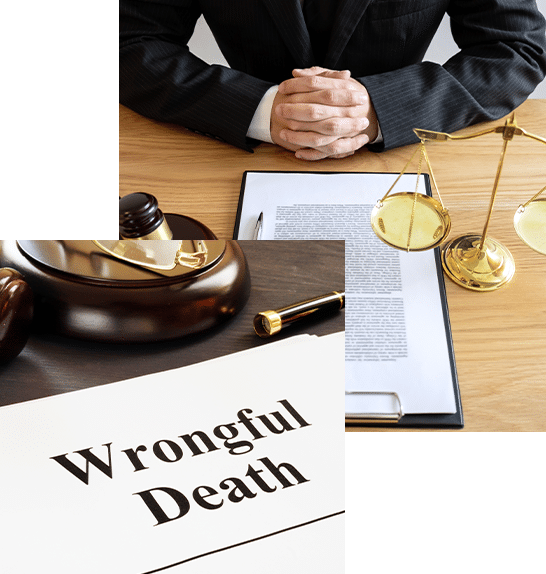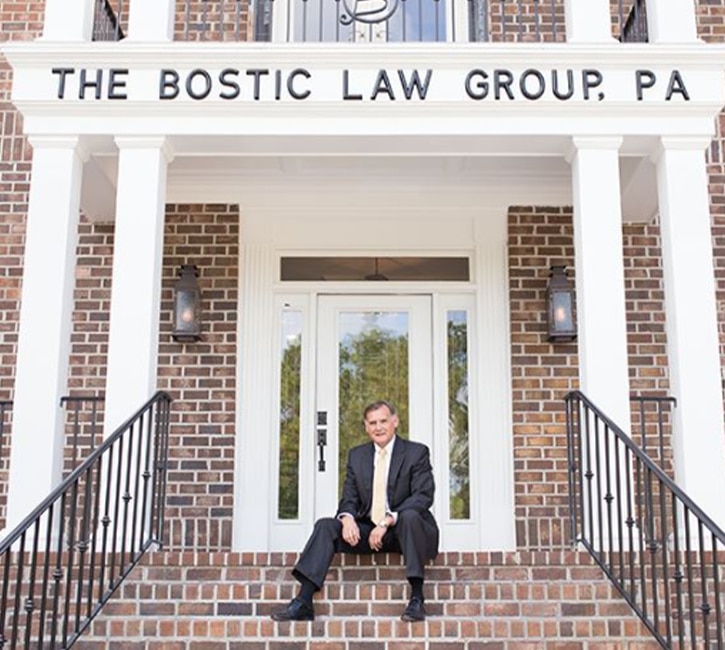Bostic Law Group is awesome! They helped us close on the purchase of our first home and they helped us create a will. Great people, great experience! I would highly recommend to anyone!
Google
Curtis and his associates are very knowledgeable and really work for the best interest of the client. Also a Christian.
Google
I would like to offer my heartfelt and sincere recommendation for the Bostic Law Group. They are keenly focused on achieving a fair and equitable settlement for their clients and have the highest level of professionalism and integrity. They have represented my family on multiple occasions with outstanding results. In addition to their professional expertise, they communicate with their clients a welcomed degree of thoughtfulness and compassion. I would recommend them highly to my family members or anyone considering the need for legal services.
Google
Great service and very easy to deal with. They took care of everything after my accident and got me what I deserved not just what the insurance companies wanted to give. Great people and professional.
Google
They really care for their clients and have their best interests in mind.
Google
Very professional and experienced with a excellent reputation and solid reference
Google
They are really good at helping sort through the details and keeping things on track. I highly recommend this practice for real estate closings.
Google
TRULY client focused! Professional AND personable! Even though the initial lawyer I was assigned (KG) changed opportunities, there was a smooth transition. Thank you for everything you've done and CONTINUE to do!
Google
Great, professional legal services. Bonus for great building and meeting rooms.
Google
Awesome group of lawyers
Google
Great people! Very kind and helpful.
Google
I had the pleasure of Mr Chris Ramsy representing me in court. I would highly recommend him. Very knowledgeable and committed in providing excellent service.
Google
Amazing law firm especially Scott Drescher. Very helpful and friendly
Google
Top notch people. Very impressed
Google
Best place to go if you need legal advice !
Google
Due their location near South State Bank, we chose BLG for the closing when selling our home, and again when we purchased our new home. Kristen/Sharon are professionals and performed both closings like clockwork, and would not look elsewhere for any future closings.
When I had an unruly customer that could not be pleased even after completing all her demands, I turned the situation over to Chris Ramsey. He dealt with the customer's attorney and my insurance company and turned a bad situation into an amicable conclusion.
With gusto and confidence, I refer my family, friends and former clients to the BLG. They are honest and uphold the highest of integrity. Thank you Curtis Bostic for providing the Lowcountry with professionals that can handle all your legal requirements.
Google
I have used Bostic Law for well over 10 years for a variety of personal, real-estate and corporate/business needs. They have my complete trust and have repeatedly shown that my trust in them has been well placed. I have worked with Curtis, Danielle and most all of his team there to some degree or another during that time. They always seem to have the best answer, the reasons behind it, while maintaining the highest degree of honesty and integrity. They are pleasant and professional at all times seeing the job through to completion. Thank you!
Google
I highly recommend calling Bostic. They were wonderful to work with!
Google
Bostic Law Firm has been the best and most professional group I have ever worked with. I highly recommend their services and Sean Wilson is very courteous and top notch.
Google
Curtis Bostic , the attorneys and the team at Bostic Law Firm were overwhelming in their competence, kindness , and thoroughness of my legal needs. Not one moment did I feel underserved but was continually amazed by their graciousness to my family and myself.
Google
Sean Wilson, of the Bostic Law Firm did a great job handling my case. He was extremely professional and gave great council throughout the entire process. I've since recommended he and the firm to council one of my family members. Great all around experience!
Google
Sharon and Kristen are GREAT to work with and very professional. (I have used them before in dealing with my real estate closings).
Google
The Bostic Law Firm handled my case in an excellent and professional manner. It was so helpful to be able to direct unwanted insurance calls to my attorney and trust that my case was being handled with my best interests in mind. Mr. Sauer has been extremely thorough in providing information to me, taking the time to call or schedule meetings to ensure that we fully understood every option available to us, all the while providing guidance as to the most advisable step. The amount of time and effort that was invested in my case gave me great peace of mind and I would highly recommend turning to the Bostic Law Firm in any situation.
Google
Curtis and his team were wonderful in helping me settle a case and provided excellent representation. I was most impressed with the timely effort and professionalism with which the case was handled.
Google








 (843) 571-2525
(843) 571-2525





















